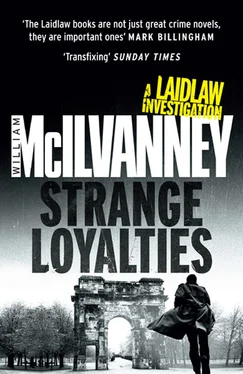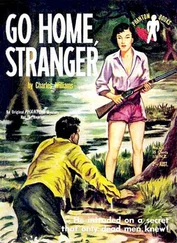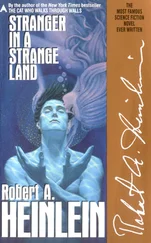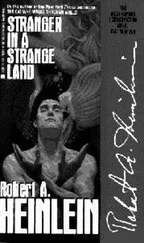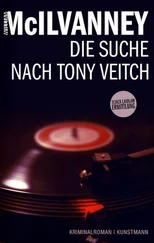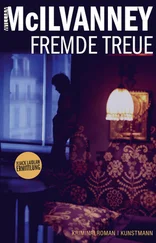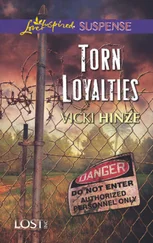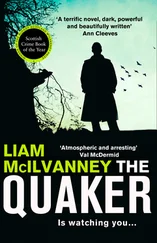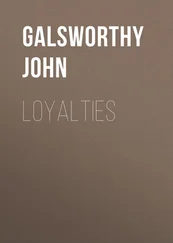William McIlvanney - Strange Loyalties
Здесь есть возможность читать онлайн «William McIlvanney - Strange Loyalties» весь текст электронной книги совершенно бесплатно (целиком полную версию без сокращений). В некоторых случаях можно слушать аудио, скачать через торрент в формате fb2 и присутствует краткое содержание. Год выпуска: 0101, Издательство: Canongate Books, Жанр: Полицейский детектив, на английском языке. Описание произведения, (предисловие) а так же отзывы посетителей доступны на портале библиотеки ЛибКат.
- Название:Strange Loyalties
- Автор:
- Издательство:Canongate Books
- Жанр:
- Год:0101
- ISBN:нет данных
- Рейтинг книги:4 / 5. Голосов: 1
-
Избранное:Добавить в избранное
- Отзывы:
-
Ваша оценка:
- 80
- 1
- 2
- 3
- 4
- 5
Strange Loyalties: краткое содержание, описание и аннотация
Предлагаем к чтению аннотацию, описание, краткое содержание или предисловие (зависит от того, что написал сам автор книги «Strange Loyalties»). Если вы не нашли необходимую информацию о книге — напишите в комментариях, мы постараемся отыскать её.
Strange Loyalties — читать онлайн бесплатно полную книгу (весь текст) целиком
Ниже представлен текст книги, разбитый по страницам. Система сохранения места последней прочитанной страницы, позволяет с удобством читать онлайн бесплатно книгу «Strange Loyalties», без необходимости каждый раз заново искать на чём Вы остановились. Поставьте закладку, и сможете в любой момент перейти на страницу, на которой закончили чтение.
Интервал:
Закладка:
I wished now that I had been more help. We were both too sore at that time. As we drank and talked into the night, we discovered a new kind of sibling rivalry. You think you’ve got wounds? Look at mine. Your compass is broken? My ambition’s got gangrene. Women came in for much meandering analysis. Weighty pronouncements on the nature of relationships were made and forgotten. Past girls who had long since vanished into unknown marriages and for all we knew divorces were conjured from their names and seen in the maudlin glow of nostalgia and knelt before, like shrines we never should have lost faith in. We battered ourselves against the incomprehensible and the unsayable and lay back exhausted.
At about half past three in the morning, Scott sat up suddenly on the floor where he’d been lying. He stared ahead like a visionary.
‘I came here to tell you something,’ he said. ‘I should have told you this before.’
He looked at me and looked away. Whatever he had to say was not something he found easy to say.
‘I am leaving Anna,’ he intoned and lay back down and went to sleep.
Next morning he sheepishly washed himself and shaved with my razor and went back to her. I had seen him a few times since then but only over the shoulder of other people’s events.
That was my last real memory of him alive and it wasn’t such a bad one. Let those who think life is measurable by its propriety wish for nicer last remembrances of the ones they love. That crazy night stayed with me. It made me smile. For in spite of all the hurt, he had somehow stayed above it. The size of the pain was the size of the dream he felt denied in him. To hold the pain yet was yet to hold the dream. That was one reason why I couldn’t forgive his dying. That was one reason why I was driving towards Anna.
Who was Anna? I had never quite worked that out. I knew what she looked like all right. She was small and fine-boned and sweet-faced. Since her marriage to Scott, she and I had always exchanged pleasantries like sealed envelopes. Who knew what implications were inside them? Perhaps I would find out now.
On my left I saw Fenwick, where Brian Harkness had lived with his father before marrying Morag. I had met the old man several times. I liked him. I was tempted to go in and see him, postpone my descent into whatever Graithnock had in store for me. Brian’s father and I had things in common. He wasn’t sure of policemen either. But Graithnock was only minutes away — too late to hide.
I went round the one-way system until I saw a phone-box. Then I had to find a parking place. I had decided that, before I spoke to Anna, I would get in touch with John Strachan. He had told me at the funeral that he had been with Scott before he died. I think I was taking out insurance against the possibility of Anna’s monosyllabic responses. If she didn’t want to tell me anything, I could defy her silence and still make my journey worthwhile. I phoned Scott’s school.
‘Good afternoon. Glebe Academy.’
There was a typewriter in the background and a voice saying something I couldn’t hear — those delicious sounds of normalcy that are sweets in the shop-window to an obsessive and he’s a boy again, only able to stare in, without the currency to purchase.
‘Glebe Academy. Yes?’
‘Good afternoon. Could I speak to Mr Strachan, please?’
‘Who’s calling, please?’
‘My name’s Laidlaw. Jack Laidlaw. I’m Scott’s brother.’
I had nearly said, ‘I was Scott’s brother.’ Grief is often so mannerly that it ties itself in knots. I heard a silence I didn’t understand at the other end.
‘Oh, Mr Laidlaw.’ Then she said something that stuck to my chest like a badge. ‘You had one terrific brother, Mr Laidlaw. A lot of us miss him. Pupils and staff alike.’
I loved not just the statement. I loved the breathlessness of her voice, the spontaneity with which she said it, the breaking through the barrier of her own embarrassment. It wasn’t something she had said by rote.
‘Thanks,’ I said.
‘I’ll get Mr Strachan for you.’
When he came, I didn’t recognise the voice and I realised I might not know him if I saw him.
‘Hullo. Mr Laidlaw?’
‘Mr Strachan. I’m sorry to disturb your day. I know you must be busy. But I’m in Graithnock today. And I just wondered. Would it be possible to talk to you? About Scott. I just would like to understand it better. I’m sorry to impose on you. But could I see you sometime? Even just for half-an-hour?’
He hardly paused.
‘You could come to the house tonight,’ he said.
‘You sure?’
‘I’m sure. You’ll still be around later on?’
‘Definitely.’
‘Okay. I’m sorry I haven’t time to warn Mhairi. Or you could eat with us. But you could come after that. If that’s all right.’
‘That’s great.’
He gave me the address. I was relieved. That meant I was bound to recognise him.
‘Say about seven o’clock. Let’s hope we’ve got the kids down by about then.’
‘That’s great. I’ll see you then. I appreciate this.’
‘It’s no problem. Scott’s worth talking about.’
His words and those of the secretary were ointment on my mind. Two people agreed with the feeling in me. I felt as if I was a member of a cadre against the indifference to Scott’s death. I was ready to talk to Anna now, invested with more authority than my own mania. I went back to the car.
5
Scott and Anna’s house was the end one in a street of terraced houses. There were trees in the street, emerging from the buckling asphalt defiantly. As I parked between two of the trees, I noticed the sign. It was stuck in the sandstone chips of the front garden. It said ‘For Sale’.
I got out and went up the path and rang the bell. It was one of those rings you know will never be answered, tirling into hollow silence. It was, appropriately enough, like calling at a mausoleum. I looked in the curtainless front window. The room was completely denuded. There were lighter patches on the walls where Scott’s paintings had been hanging.
My memory rehung one of them. It was a big canvas dominated by a kitchen window. In the foreground on the draining board there were dishes, pans, cooking utensils. Through the window was a fantastic cityscape of bleak places and deprived people and cranes and furnaces. The people were part of the objects, seemed somehow enslaved by them. I remember a face looking out of a closed tenement window as if through bars. It was meant, Scott had told me, to be an echo of the face that was looking at his painting. I remember a man’s face seeming liquid in the glow of his own blowtorch, as if he were melting down himself. The whole thing was rendered in great naturalistic detail, down to recognisably working-class faces below the bonnets, but the total effect was a nightmare vision. On the left of the kitchen window, like an inaccurate inset scale on some mad map, was a small, square picture. It was painted in sugary colours in vivid contrast to the scene outside. It showed an idealised Highland glen with heather and a cottage pluming smoke from the chimney and a shepherd and his dog heading towards it. Scott had called his painting ‘Scotland’.
The painting became the empty patch on the wall again. So easy was it to erase that fiercely felt vision. The room was anybody’s, nobody’s. Even the carpet had been lifted. Anna had always been thrifty.
I crunched across the chips and went round the side of the house. There was a wooden door set in the wall around the garden. It was locked. I put my foot on the door-handle, pulled myself up and dropped over. The back area was just an outhouse, a garage and a patch of grass. Gardening hadn’t been one of Scott’s passions.
Читать дальшеИнтервал:
Закладка:
Похожие книги на «Strange Loyalties»
Представляем Вашему вниманию похожие книги на «Strange Loyalties» списком для выбора. Мы отобрали схожую по названию и смыслу литературу в надежде предоставить читателям больше вариантов отыскать новые, интересные, ещё непрочитанные произведения.
Обсуждение, отзывы о книге «Strange Loyalties» и просто собственные мнения читателей. Оставьте ваши комментарии, напишите, что Вы думаете о произведении, его смысле или главных героях. Укажите что конкретно понравилось, а что нет, и почему Вы так считаете.
